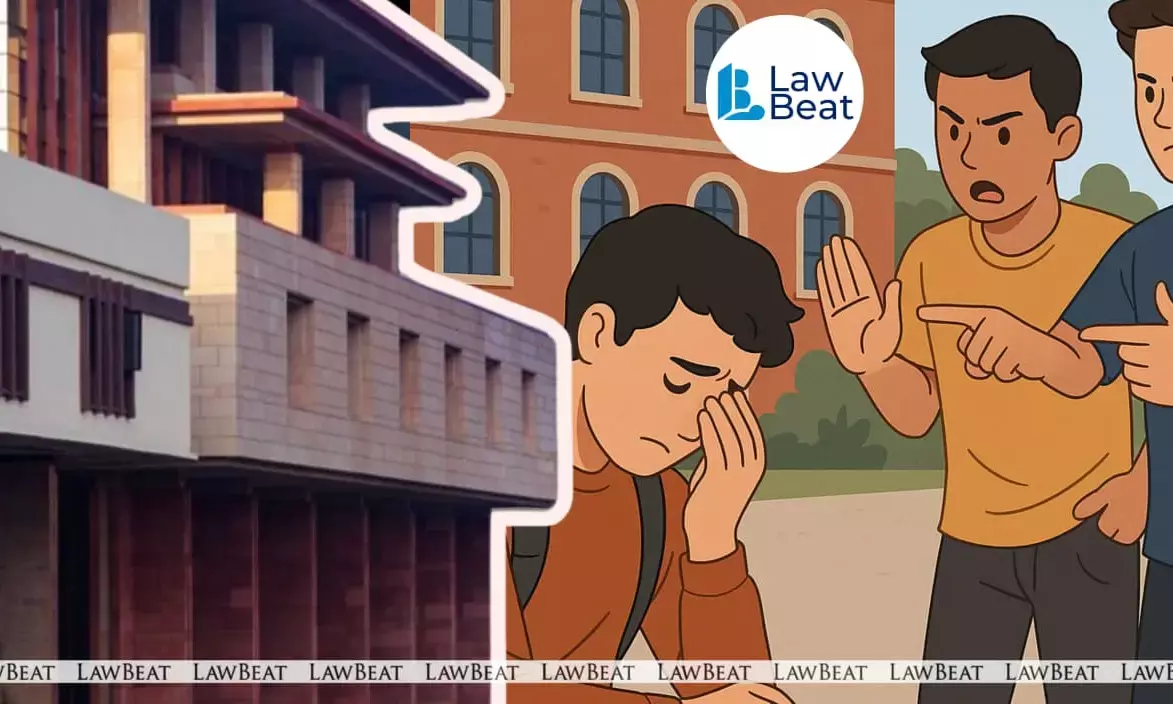Student Suicides on the Rise: Delhi HC Stresses Need for Effective Anti-Ragging Helpline

Delhi HC stressed urgent need for a proper, functional Anti-Ragging Helpline amid rising student suicides
The Delhi High Court has raised alarm over the disturbing rise in student suicides, stressing that urgent steps must be taken to address the crisis.
A Division Bench of Chief Justice Devendra Kumar Upadhyaya and Justice Anish Dayal said that, at the very least, a proper, functional and effective Anti-Ragging Helpline is an immediate necessity.
In a detailed 30-page judgment authored by Justice Dayal, the Court noted that the broader issues of student suicides and mental health are already under consideration of the National Task Force constituted by the Supreme Court in Amit Kumar & Ors. v. Union of India.
“This can brook no delay, lest we lose more young lives to this scourge,” the Bench observed.
The petitions before the Court were filed by the Aman Satya Kachroo Trust, founded by Prof. Rajendra Kachroo, father of Aman Kachroo, who died in 2009 as a result of ragging. The Trust had managed the National Ragging Prevention Programme (NRPP) from 2012 until April 2022, when the University Grants Commission (UGC) handed over the contract to the Centre for Youth (C4Y) Society through a fresh tender.
One petition sought cancellation of the contract awarded to C4Y, while the other challenged UGC’s notice and tender process dated 18 June 2024, alleging that the conditions were arbitrary and exclusionary.
The NRPP was first conceptualised by Prof. Kachroo in 2009 as a technology-driven plan to eradicate ragging. It included a 24x7 nationwide helpline, a database of students and parents, a database of anti-ragging committees across nearly 50,000 colleges, and a compliance and monitoring system through a call-centre platform.
The Supreme Court approved the plan in University of Kerala v. Council of Principals (2009) and directed that it be monitored by a non-governmental agency. Pursuant to the directions, UGC framed the “ UGC Regulations on Curbing the Menace of Ragging in Higher Educational Institutions, 2009”
Initially, the Ministry of Education engaged four private companies between 2009 and 2011 to run the programme. They failed, exposing the fragility of the system. The crisis was underlined in December 2010 when a student named Abhishek from SRM University died by suicide. An NHRC investigation found that the anti-ragging helpline was non-functional.
In 2012, the UGC entrusted the programme to the Aman Satya Kachroo Trust. The Trust developed the necessary software at its own cost and provided it free of charge. It continued to run the programme for nearly a decade, first through nomination pursuant to Supreme Court orders, and later through a competitive process in 2013.
In 2021, however, a PIL alleged irregularities in the Trust’s appointment. Following this, the UGC decided to issue a fresh tender and, in December 2021 awarded the contract to C4Y. The Trust was directed to hand over the programme by April 2022 and challenged the decision in the Delhi High Court.
While that petition was pending, the UGC issued another tender for a contact centre to handle complaints of ragging and racial discrimination. The Trust filed a fresh writ petition, arguing that the new tender was simply an extension of the earlier one and was designed to exclude them permanently.
The Trust contended that the eligibility conditions were arbitrary. These included a turnover requirement of Rs. 2 crores in the last two years, eligibility limited to companies and PSUs (thus excluding trusts), and disqualification of entities in litigation against the UGC. The Trust also alleged that C4Y was unqualified and was fronting for another NGO, SSS Society, while ragging complaints had begun to rise again.
The Court, without delving into the merits of these allegations, said it was not inclined to disrupt the work being carried out by C4Y at the end of its contract. "Without going into the merits of the submissions made on behalf of the petitioner/Trust and the respondent no.1/UGC in Court and without entering into the controversy, this Court is not inclined to curtail theongoing work by respondent no.3/C4Y at the tail end of the contract," the Court said.
However, the Bench recorded its concern over what the Trust described as a “ham-handed” and “lackadaisical” approach of the UGC and the alleged inefficiency of C4Y in managing a functional anti-ragging programme. It noted that the data showing increased incidents of student suicides could not be ignored.
The judges expressed hope that these concerns would be addressed by the National Task Force constituted by the Supreme Court, where Prof. Rajendra Kachroo is a member, and that necessary reforms would follow in the larger interest of students.
“The Court is deeply concerned with the issue of student suicides, which are becoming more frequent. Urgent steps are required to address this,” the Court said.
With these observations, the Court disposed of both petitions.
Case Title: Aman Satya Kachroo Trust v. University Grants Commission & Ors.
Judgment Date: 10 September 2025
Bench: Chief Justice DK Upadhyaya and Justice Anish Dayal
